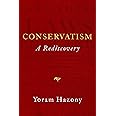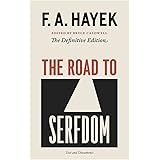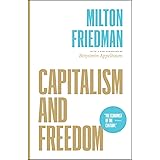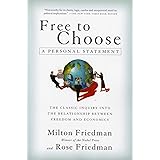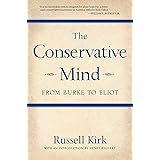
Enjoy fast, free delivery, exclusive deals, and award-winning movies & TV shows with Prime
Try Prime
and start saving today with fast, free delivery
Amazon Prime includes:
Fast, FREE Delivery is available to Prime members. To join, select "Try Amazon Prime and start saving today with Fast, FREE Delivery" below the Add to Cart button.
Amazon Prime members enjoy:- Cardmembers earn 5% Back at Amazon.com with a Prime Credit Card.
- Unlimited Free Two-Day Delivery
- Streaming of thousands of movies and TV shows with limited ads on Prime Video.
- A Kindle book to borrow for free each month - with no due dates
- Listen to over 2 million songs and hundreds of playlists
- Unlimited photo storage with anywhere access
Important: Your credit card will NOT be charged when you start your free trial or if you cancel during the trial period. If you're happy with Amazon Prime, do nothing. At the end of the free trial, your membership will automatically upgrade to a monthly membership.
Buy new:
-41% $14.79$14.79
Ships from: Amazon.com Sold by: Amazon.com
Save with Used - Good
$12.34$12.34
Ships from: Amazon Sold by: CW Solutions

Download the free Kindle app and start reading Kindle books instantly on your smartphone, tablet, or computer - no Kindle device required.
Read instantly on your browser with Kindle for Web.
Using your mobile phone camera - scan the code below and download the Kindle app.

OK
The Libertarian Reader: Classic & Contemporary Writings from Lao-Tzu to Milton Friedman Paperback – February 17, 2015
Purchase options and add-ons
An important collection of seminal writings on a movement that is rapidly changing the face of American politics, The Libertarian Reader links some of the most fertile minds of our time to a centuries-old commitment to freedom, self-determination, and opposition to intrusive government. This is the first comprehensive anthology of libertarian thought—from the Bible and Lao-Tzu to Hayek and Milton Friedman—to be published in one volume. The 68 selections from great libertarian writers are an intellectual feast, covering such key libertarian themes as skepticism about power, individual rights, spontaneous order, free markets, and peace.
For all independent thinkers, this unique sourcebook will stand as a classic reference for years to come, and a reminder that libertarianism is one of our oldest and most venerable American traditions.
- Print length624 pages
- LanguageEnglish
- Publication dateFebruary 17, 2015
- Dimensions5.5 x 1.4 x 8.38 inches
- ISBN-109781476752891
- ISBN-13978-1476752891
The Amazon Book Review
Book recommendations, author interviews, editors' picks, and more. Read it now.
Frequently bought together
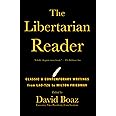
Similar items that may ship from close to you
Editorial Reviews
About the Author
Product details
- ASIN : 1476752893
- Publisher : Simon & Schuster (February 17, 2015)
- Language : English
- Paperback : 624 pages
- ISBN-10 : 9781476752891
- ISBN-13 : 978-1476752891
- Item Weight : 1.26 pounds
- Dimensions : 5.5 x 1.4 x 8.38 inches
- Best Sellers Rank: #1,242,016 in Books (See Top 100 in Books)
- #772 in Political Parties (Books)
- #818 in Political Freedom (Books)
- #3,503 in Political Philosophy (Books)
- Customer Reviews:
About the author

David Boaz, the executive vice president of the Cato Institute, has played a key role in the growth of the libertarian movement. He is the author of "The Libertarian Mind: A Manifesto for Freedom" and editor of "The Libertarian Reader."
The earlier edition of "The Libertarian Mind," titled "Libertarianism: A Primer," was described by the Los Angeles Times as "a well-researched manifesto of libertarian ideas" and by Richard Epstein as "unit[ing] history, philosophy, economics and law—spiced with just the right anecdotes—to bring alive a vital tradition of American political thought." His other books include "The Politics of Freedom," the "Cato Handbook For Policymakers," "Liberating Schools," and "The Crisis in Drug Prohibition." His articles have been published in the Wall Street Journal, the New York Times, the Washington Post, the Los Angeles Times, National Review, Slate, and the Encyclopedia Britannica.
He is a frequent guest on national television and radio shows and a popular speaker on college campuses and at corporate and community events.
Customer reviews
Customer Reviews, including Product Star Ratings help customers to learn more about the product and decide whether it is the right product for them.
To calculate the overall star rating and percentage breakdown by star, we don’t use a simple average. Instead, our system considers things like how recent a review is and if the reviewer bought the item on Amazon. It also analyzed reviews to verify trustworthiness.
Learn more how customers reviews work on AmazonReviews with images
-
Top reviews
Top reviews from the United States
There was a problem filtering reviews right now. Please try again later.
This is just the first selection. Books could be written in response to any one of the fascinating readings in this book. It is a fabulous primer for those interested not just in the Libertarian party but also those interested in developing a coherent political philosophy of their own. A thoughtful reading of this book may or may not change your party affiliation but it will wake you up.
That it came out so late (1997) reflects libertarians' tendency to arrogance, underestimating the need to market their abstract product and educate the populace. The Cato Institute, of which Boaz is vice president, is now rapidly making up for lost time.



Top reviews from other countries
The core of Libertarian thought is the right of the individual to exist and the idea of consent. Rights can not be conferred; they exist as a central fact of a person's life. Without rights society or individuals can not be said to be `free'. Freedom in this context essentially means the right to live without presuming on the 'rights' of others or having others impose on us unduly. Society so can be said to exist, operates through a variety of networks. These networks involve negotiation and exchange. Most social and individual needs can be met by the market, Libertarians claim. Allow markets to set price and this will indirectly incentivise socially desirable behaviour through the mechanism of the free market (example: carbon credits) and suddenly individuals cooperate without needing to be directed,furthering their own interests and in so doing create side benefits that impact on wider society. More importantly markets create incomes,employment, choice, higher output, competitive pricing and innovation. Markets are good for people because they are a symbol of,and created by individual freedom. The exciting thing about this line of thinking is that presupposes that there is no big 'end game' or imagined social optimum as outlined by some paternal all -knowing central authority. In other words, individuals and society are free to set their own vision of the future.
Central to this idea is the protection of property rights. Individuals labour because they enrich themselves in what ever way they consider best. They will make mistakes but they will slowly edge towards finding out how to orientate themselves in order to maximise their preferred outcomes. Self- interest is not a sin. Individuals for instance may often use their wealth for socially desirable projects. Self -interest does not preclude charity, in fact it enables it. Only those with a surplus can give to others. Hence in the absence of the state, individuals are now freer and more willing to help their fellow citizens. As there is no other agent of beneficence, individuals, charities and religious organisations can cooperate to aid those who are perceived to need it. Libertarianism is not about the tyranny and steel hard grasp of exploitative indifferent markets, it is about how goods and services are to distributed in the absence of 'big brother'. In other words free markets 'localise' decision making in order to maximise individual welfare. Whilst in contrast governments seek to look at aggregates like employment, inflation and income distribution and hope to address these issues with 'one size fits all' policies that frequently do more harm then good.
Libertarianism also suggests that government is a rent seeking operation that takes in taxes at one end, dispenses largesse at the other while siphoning off the residue for its own purposes. Governments often act with the minimum of consent. It is sobering to think that states are responsible for wars. Even the worst serial killer in history could never be capable of the sort of extortion, mass murder and acquisitiveness that many states have indulged in ,in the name of ideals like nationalism or protection of some assumed 'interest' or other. So the role of the state has to be heavily restricted- perhaps to defence, justice and basic administrative tasks. In this way, freedom is safeguarded. Governments like 'order', by which they mean behaviour that is regulated to support the status quo. Markets however thrive on change. As tastes change or prices change, market participant's change, they must in order to survive and /or maximise their best interests.
The chapters I found particularly interesting where on the subject of the irrelevance of government. Read john Perry Barlow on the 'future of government' and you will have some insight into the current debate of should London declare independence. History is going full circle, back to the city states that the Greeks and our medieval forbears knew so well. The most amusing essay title by the way goes to `If you're paying, I'll have Top Sirloin' by R. Roberts. Many a true word spoke in jest!
Libertarianism seems to be the stuff of the extremes- the swivel-eyed social outcast, Jeremiah like prophesying doom of our statist economies because of wasted tax monies, lack of enterprise and ambition and welfarism.The cause isn't helped because many people worry about words like 'Free markets', 'self interest' and the 'chaos' that small government imply. The problem is, libertarians haven't explained themselves cogently enough. Many of the ideas are too much in the abstract. What would a world of small government be like for you and me? Its time Libertarians got out of the world of ideas and looked at concrete cases. What for instance does Libertarianism have to say about welfare for the poor and the control of monopolies? How would a Libertarian party work the necessarily messy process from the mixed - market to the free market ideal?
Consider where many Western governments find themselves. If state corporatism is not the answer then what is? No party as currently configured could currently get elected on a 'pure' Libertarian ticket. Yet the growing consensus is that the post war boom is and truly over. New challenges have arrived and so new responses have to be made. But it is not for government to formulate that response. It is by individuals looking to their own self interest (however defined) to make their own future. Therefore citizens should be pay less tax, business face less tariffs and regulation, and there should be less restriction on labour and capital movement in order for people to be free to do as they wish. After all individuals like you and I don't worry about 'GDP', we worry about our own GDP and therefore should be free to maximise it!
So a 'The Libertarian Reader' is an invigorating read: offering many interesting insights, challenging many a precious notion and not without the occasional sprinkling of humour and sense of humanity. To me `Libertarian' thinking is like a cold shower- not always comfortable, not always the `right answer' but it clears away the dreamy misconceptions that fog the mind when half asleep.Recommended.







